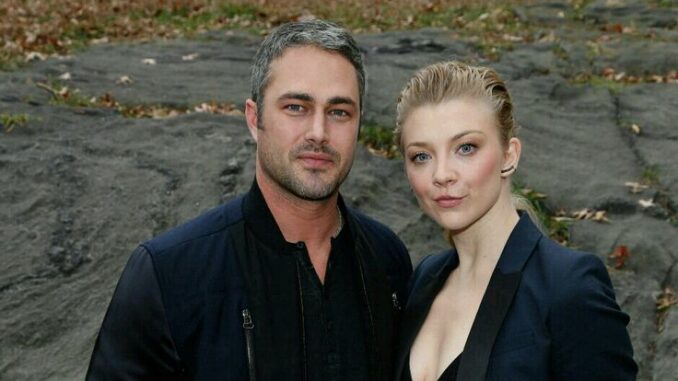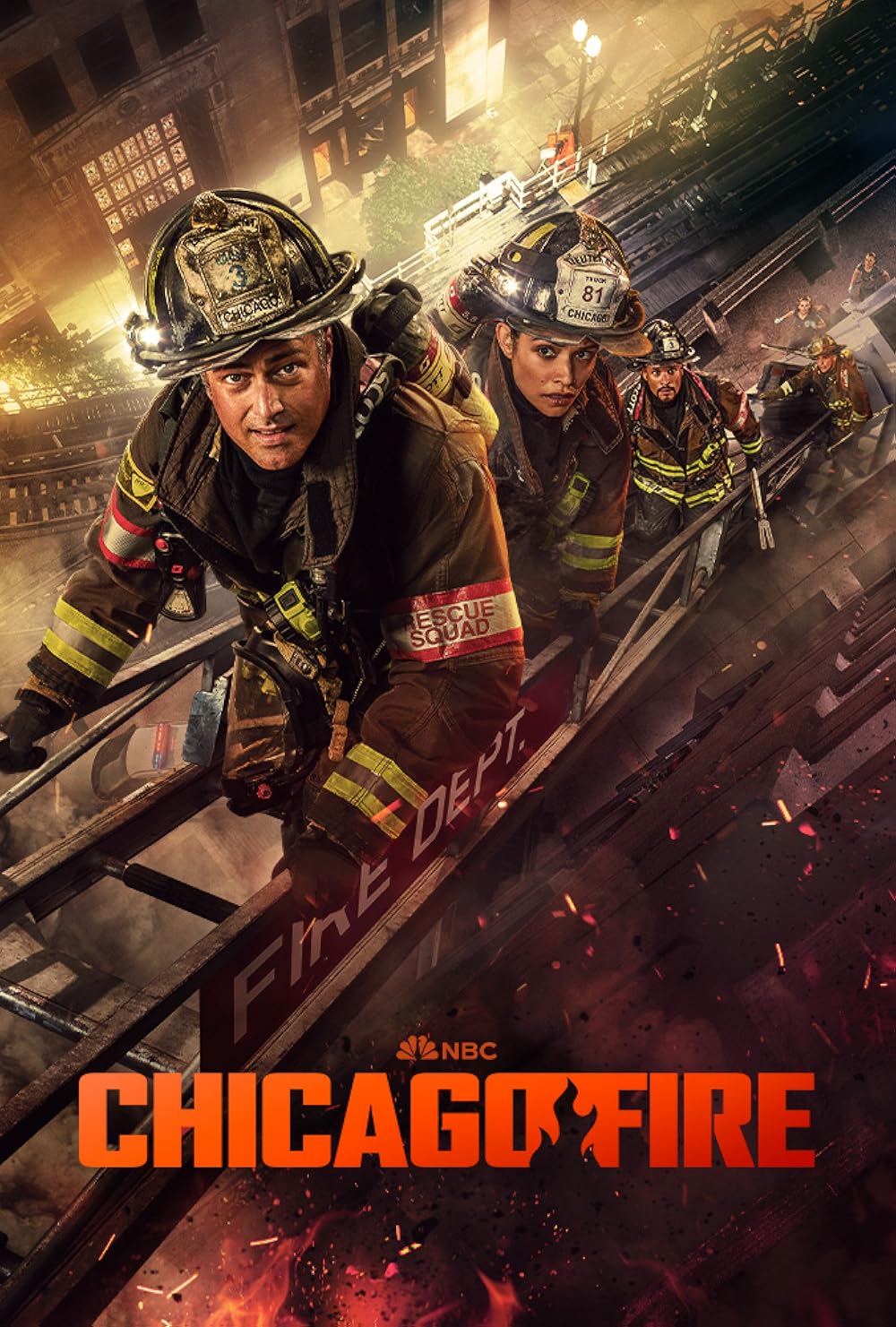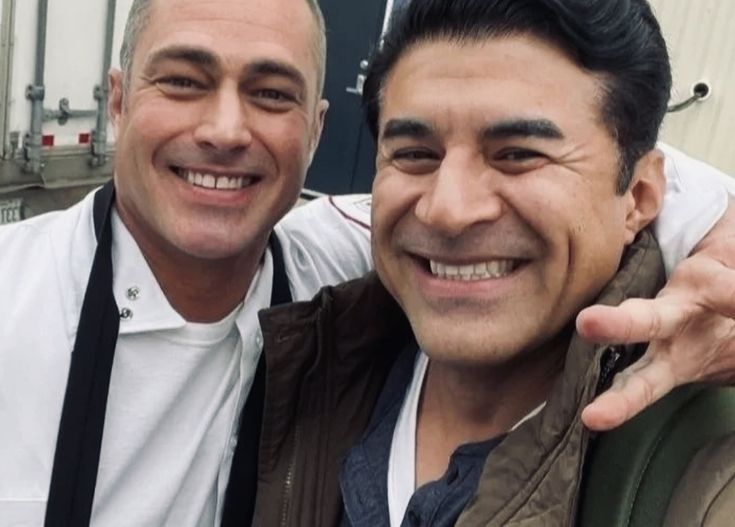
The blazing irony? When the real world catches fire, fictional fire dramas get too hot to handle.
This week, CBS pulled the latest episode of its hit show ‘Fire Country’ in response to the devastating wildfires sweeping across Los Angeles, raising eyebrows and questions among fans. Meanwhile, NBC’s ‘Chicago Fire’ continued to air as usual, leaving viewers wondering: What gives?
Let’s break it all down — from the ethical concerns to network decisions and what it all means for the future of fire-based dramas.

🔥 What Is ‘Fire Country’?
‘Fire Country’ is a CBS drama about a group of prison inmates who volunteer as firefighters in exchange for reduced sentences. It’s intense, emotional, and packed with action — sometimes eerily similar to real-life fire events.
🔥 Why Was ‘Fire Country’ Pulled This Week?
CBS decided to pull the episode out of sensitivity to the real wildfires ravaging parts of California, particularly Los Angeles County. The episode in question reportedly featured a storyline about a massive wildfire, which would have aired during the ongoing natural disaster.
The decision was made to avoid insensitivity and to show respect for those affected, especially first responders and evacuees.
🔥 Timing Is Everything — And This Timing Was Bad
Imagine watching a fictional wildfire tear through a town on TV… while your neighborhood is under an evacuation order. Yeah — not great.
Network executives took that into account. Airing fictional disaster scenes during real disasters can feel tone-deaf and even traumatic for viewers already living through a crisis.
🔥 But Why Did ‘Chicago Fire’ Air As Scheduled?
NBC made a different call. ‘Chicago Fire’ is set in Illinois — far from California’s wildfire zones — and its episode reportedly did not focus on wildfires this week. Instead, it featured an urban firefighting storyline.
Because it wasn’t directly relevant to the LA wildfires, NBC decided the show could proceed without triggering sensitivities.
🔥 Audience Reaction: Split Down The Middle
Fans are reacting with mixed emotions. Some praised CBS for being empathetic and socially aware, while others called it an overreaction.
On Reddit and X (formerly Twitter), one user wrote, “Good on CBS for knowing when to hit pause. Some of us are living this nightmare right now.”
Another chimed in with, “We can handle fiction, even during crisis. Life doesn’t stop, neither should TV.”
🔥 The Ethics of Fictionalizing Real Tragedies
Here’s the big question: Should networks ever air fictional disasters during real-life tragedies?
It’s a tightrope act between freedom of expression and emotional responsibility. Shows like ‘Fire Country’ blur the line, often inspired by real events. But when fiction mirrors real-life chaos too closely, the fallout can feel painfully real.

🔥 The Precedent: TV Shows Pulled Due to Real Tragedies
This isn’t the first time a network has hit pause.
-
After 9/11, multiple episodes featuring terrorism or plane crashes were shelved.
-
School shooting episodes are often delayed following real-life incidents.
-
Even natural disasters, like hurricanes or earthquakes, have prompted rescheduling in the past.
CBS’s decision follows a well-worn industry practice — when in doubt, don’t air it.
🔥 Streaming vs Live TV: A Scheduling Headache
In the age of Netflix and Hulu, pulling an episode doesn’t stop it from eventually getting released. But live network TV still holds a different level of cultural impact, especially when shows air weekly.
Streaming gives users control. Live TV requires sensitivity to timing, as millions may be watching in real time, including those directly impacted.
🔥 What Happens to the Pulled Episode?
Don’t worry, fans — the episode wasn’t scrapped for good. CBS will reschedule it for a later date, possibly when the wildfires are under control and no longer dominating headlines.
Until then, the network might fill the slot with reruns, special programming, or updates on the wildfires.
🔥 The Irony of Fiction vs Reality
It’s almost poetic — the fictional drama was too real for reality.
In a world where shows like ‘Fire Country’ draw inspiration from real firefighting heroes, sometimes life imitates art a bit too closely. And when it does, even Hollywood hits the brakes.
🔥 ‘Chicago Fire’ Still on Fire (Metaphorically Speaking)
‘Chicago Fire’, a veteran in the fire drama world, continues to burn strong. With its urban setting, different themes, and long-standing fanbase, the show is less likely to get pulled unless a storyline directly overlaps with current events.
NBC seems confident that its content won’t trigger viewers, which is a risk/reward calculation every network makes.
🔥 How This Affects Advertisers and Ratings
Pulled episodes don’t just impact viewers — advertisers lose placements, networks scramble for filler content, and ratings take a hit.
TV is a business, and every change comes with a cost. But many networks now prioritize public perception and social responsibility over ad revenue — at least temporarily.
🔥 What Should Viewers Expect Moving Forward?

If wildfires continue, expect:
-
More content reshuffling
-
Greater emphasis on viewer discretion
-
Episodes aired with content warnings or delay notices
Networks will likely take a case-by-case approach, balancing creative expression with real-world impact.
🔥 Could This Become a Trend?
Absolutely. In a world increasingly impacted by climate change, pandemics, and political turmoil, fictional content will keep colliding with real life.
Networks might even hire crisis consultants or use AI tools to detect “too sensitive” content before airing.
🔥 Final Thoughts: Did CBS Make the Right Call?
Most would agree: Yes, CBS made the right call. It was thoughtful, respectful, and reflective of a world where media sensitivity matters.
Not every show needs to be paused during crisis — but when fiction overlaps with trauma, hitting pause is often the most humane move.
🧯 Conclusion: The Line Between Drama and Disaster
In the end, pulling ‘Fire Country’ wasn’t just a programming decision — it was a statement of empathy. It reminded us that television, while entertaining, is deeply intertwined with our real lives.
As wildfires rage on, the entertainment industry must walk a delicate line — one that respects both storytelling and the people living through the very tragedies depicted on screen.
